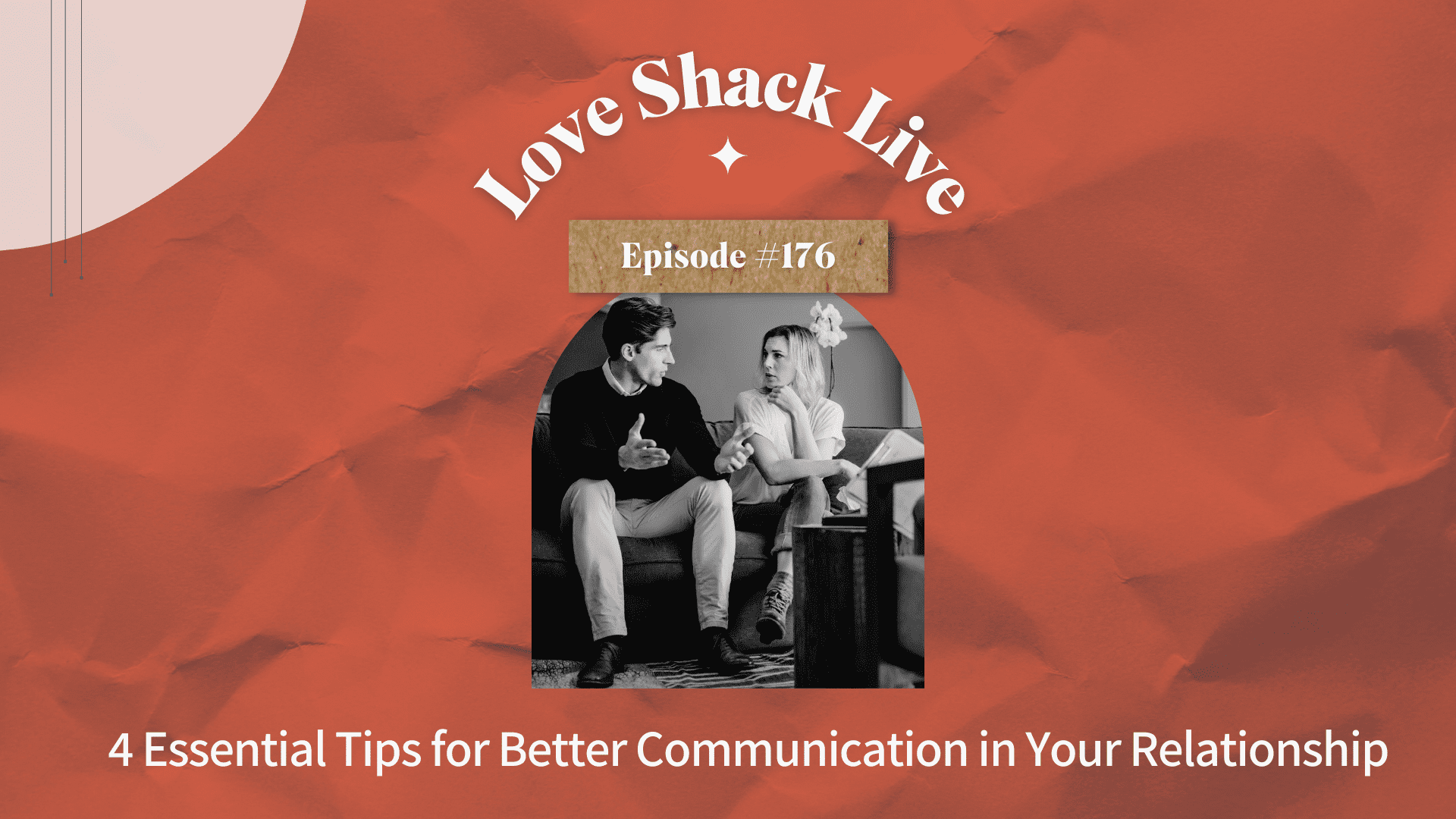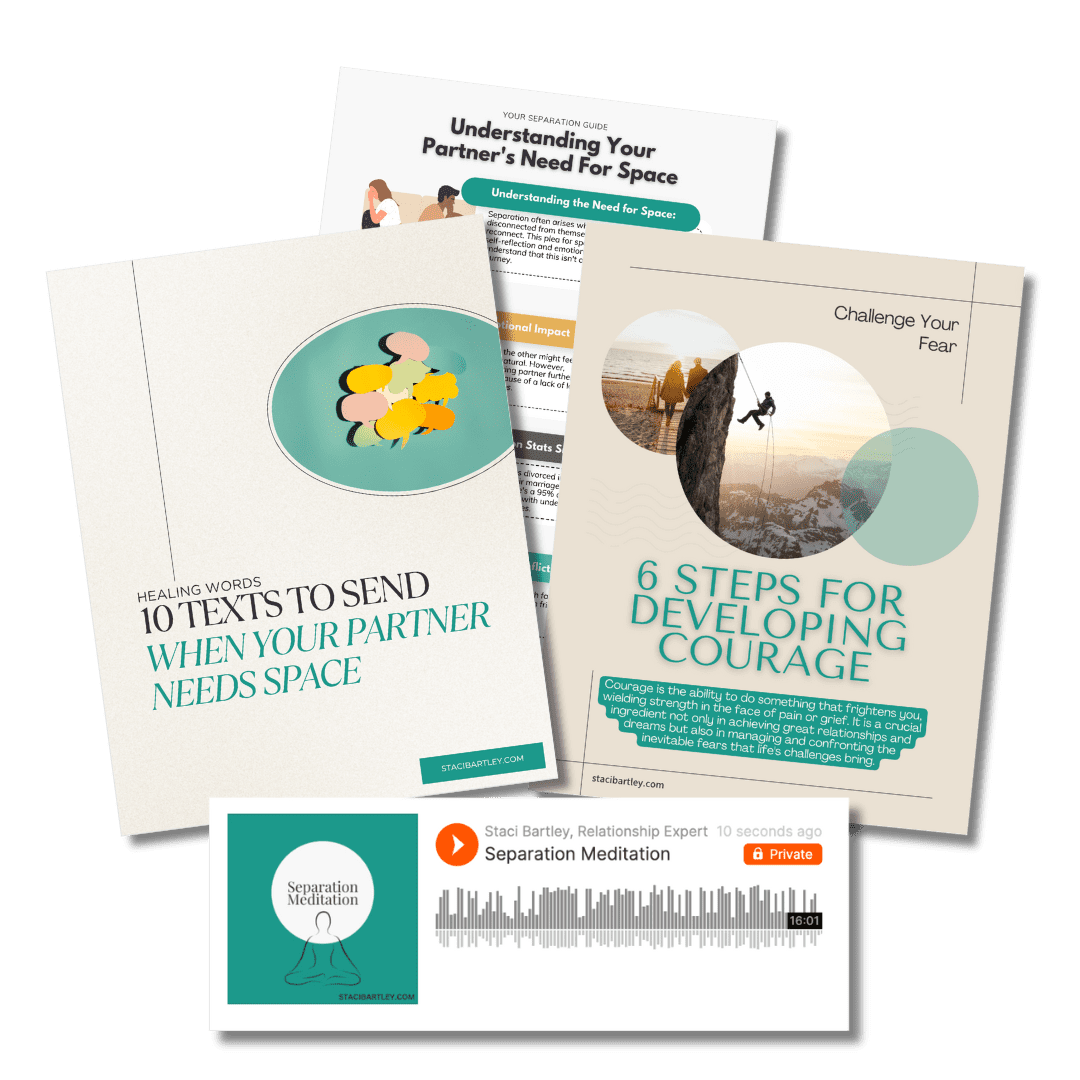#180: 4 Essential Tips for Better Communication in Your Relationship

Transform Your Relationship Communication with These Powerful Tips
Have you ever felt unheard in your relationship? Or maybe it seems like every conversation becomes a battle that leaves you and your partner feeling more disconnected than before? If so, you're not alone. Communication struggles are a common challenge in relationships, but they don't have to be insurmountable. Welcome to "Love Shack Live," a podcast dedicated to helping you create meaningful and lasting connections in your relationship. In this blog post, we'll explore four powerful ways to enhance communication with your partner and understand each other better.
The Importance of Effective Communication
Effective communication is more than just talking; it's about emotional regulation and active listening—crucial skills for any relationship, especially during emotionally challenging times. Surveys conducted with over 2,000 couples revealed that communication is often cited as the biggest obstacle in relationships. While talking frameworks are essential, they are useless if we can't manage our emotions.
Understanding Emotional Regulation
When our emotional backs are against the wall, the best communication frameworks can go out the window. Emotional triggers can cause us to react defensively, making it impossible to have a constructive conversation. Therefore, before diving into communication, we need to prioritize emotional regulation.
Separation Support Bundle
Want to stop feeling terrified about what your partner's request for space means? Not sure where to begin?
Tip #1: The Art of Active Listening
Active listening isn't just a buzzy term; it's a foundational skill that can transform your relationship.
Why is listening so hard? Our emotional responses often hijack conversations. The moment we hear words or phrases that trigger us, we stop listening and start preparing our defense. This makes it incredibly difficult to truly hear what the other person is saying. Active listening involves holding back your immediate reactions and fully engaging with your partner.
Practical Steps:
- Resist the urge to interrupt.
- Write down your reactions if something triggers you, and come back to the conversation.
- Practice emotional regulation techniques to stay calm.
Tip #2: Emotional Validation
Emotional validation is the act of acknowledging and respecting your partner's feelings. It doesn’t mean you have to agree with them, but it does mean you understand and respect where they're coming from.
Why is this important?
When you're dismissive or interrupting your partner, it undermines emotional safety. This can lead to one or both partners shutting down and avoiding meaningful conversations altogether.
Practical Steps:
- Use body language to show you're engaged.
- Acknowledge your partner's feelings, even if they are hard to hear.
- Ask clarifying questions to better understand their perspective without offering unsolicited advice.
Tip #3: The Power of Sincerely Asked Questions
Questions are the gateway to deeper understanding.
Sincere, open-ended questions invite your partner into the conversation rather than shutting it down. They show that you're genuinely interested in understanding their thoughts and feelings.
Examples:
- “You look upset. Would you be willing to share what's coming up for you?”
- “Can you tell me more about how that makes you feel?”
Practical Steps:
- Avoid yes/no questions; instead, ask questions that require thoughtful answers.
- Use questions as invitations to delve deeper into your partner's emotional landscape.
Tip #4: The Surprising Power of Code Words
Sometimes, emotions run too high for productive conversations. In these moments, a pause can be invaluable. This is where a pre-agreed code word or phrase comes in handy. It signals the need for a time-out to regroup emotionally.
Why is this effective?
- It immediately disrupts escalating conflict.
- Reminds both partners of their commitment to each other and the relationship.
Examples:
- “Hot dog” (humorous)
- “Cuddle” (heartfelt)
- “Time-out” (neutral)
Practical Steps:
- Choose a word or phrase that works for both of you.
- Use it consistently as a signal to pause and reset.
Parting Thoughts: Reflect and Reconnect
Effective communication is a journey, not a destination. By practicing active listening, emotional validation, asking sincere questions, and using a code word, you can transform your relationship and create a deeper, more meaningful connection with your partner.
Resources mentioned in this episode:
- Love in Limbo Roadmap: A 30-day journey designed to offer clarity and support through separation or divorce. Learn more and join here.
- Separation Support Sessions: Immediate support to connect with others in similar situations, available at loveinlimbo.com.
- Better Love Club: Access unlimited resources, workshops, and a supportive community to deepen your relationship skills. Explore the club.
- For direct access to all resources, including private sessions with Staci, visit StaciBartley.com and navigate to the 'Work with Me' tab.

